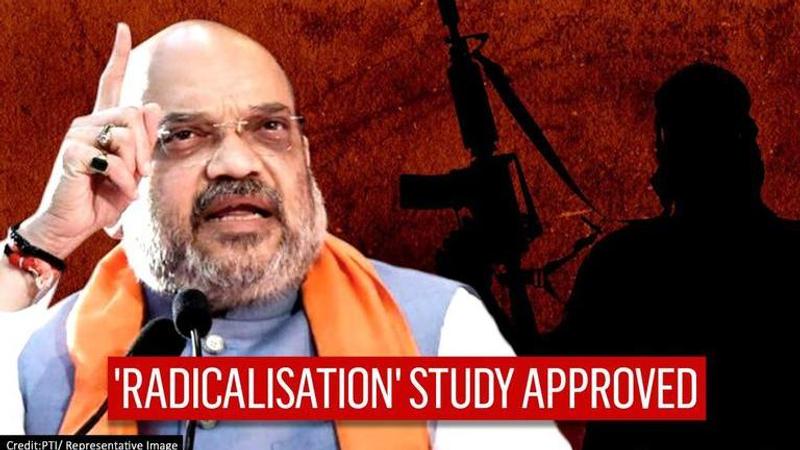Published 21:31 IST, November 22nd 2020
MHA approves study to analyse 'Radicalisation in India' and suggest amends to UAPA act
More than a year after the Unlawful Activities Prevention Amendment (UAPA) Bill was passed, the MHA, on Saturday, has approved a study to analyse radicalisation

More than a year after the Unlawful Activities Prevention Amendment (UAPA) Bill was passed, the Ministry of Home Affairs (MHA), on Saturday, has approved a study to analyse radicalisation in India. This study will suggest how to remedy and/or prevent the problem and how to amend the UAPA act. The study ‘Status of Radicalisation in India: An Exploratory Study of Prevention and Remedies’ will be done under the leadership of GS Bajpai, Professor of Criminology and Criminal Justice and Registrar of National Law University.
MHA approves 'Radicalisation in India' study
“This study is about the status of radicalisation in India. This study will analyse the pattern and dynamics of radicalisation. Also, we will study actors of radicalisation and how they are targeting youth,” Bajpai said to ANI.
He added, “Thirdly we will study who are vulnerable targets. These targets are selectively identified by actors of radicalisation. Fourthly, we are interested in the idea of de-radicalisation. We need the blueprint to counter radicalisation,” Bajpai. AIMIM chief Asaduddin Owaisi has slammed the act stating that UAPA has been used to imprison innocent Muslims Dalits and dissenters.
Currently, there exists no definition of radicalisation in the legal system. Expaining the details of the study, he said that 75 individuals undergoing de-radicalisation will be studied to define 'radicalisation' and 'de-radicalisation'. After critically reviewing subjects across four states - probably Maharashtra, Assam, Kerala and Jammu & Kashmir, Bajpai will also interview 75 law enforcement people, psychologists, counselors, religious community leaders to suggest amendments to the UAPA act.
“We will also critically reviewing the current legal aspects, UAPA Act primarily. We would study to define radicalisation and de-radicalisation. Approximately 75 radicalised individuals, those undergoing de-radicalisation and de-radicalised individuals shall be sampled from each state. Similarly, 75 functionaries from law enforcement agencies, officers of correctional services and judges will be interviewed from each state,” Bajpai said adding, “Lastly, approximately 50 relatives of the individuals, psychologists, psycho-social workers, counsellors, religious and community leaders will be sampled from each state.”
Unlawful Activities Prevention Amendment (UAPA) Bill 2019
Cracking down heavily on terror, this bill introduced by Shah was passed by the Lok Sabha in 287-8 votes and the Rajya Sabha by 147-42 votes on August 2, 2019 after a fiery debate on the floor of the parliamentary house. This bill - an extension of the Unlawful Activities (Prevention) Act, 1967 amends the Act providing special procedures to counter terrorist activities, giving the National Investigation Agency (NIA) in particular additional powers while dealing with terrorism cases. Furthermore, it allows the government to designate an individiual as 'terrorist', allows NIA to conduct investigations, approve seizure of property and includes other treties in the previous Act. 3,974 individuals have been arrested under UAPA in the last three years, as per reports.
Updated 21:31 IST, November 22nd 2020




